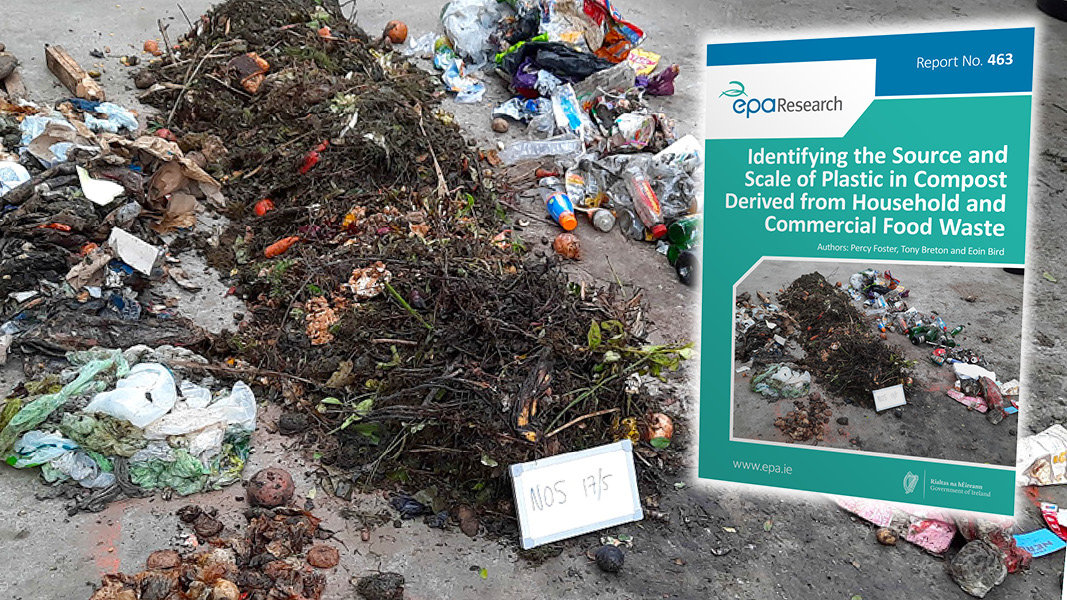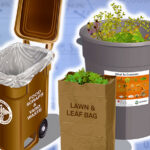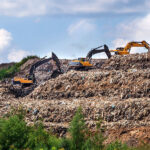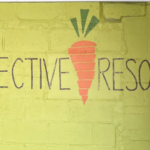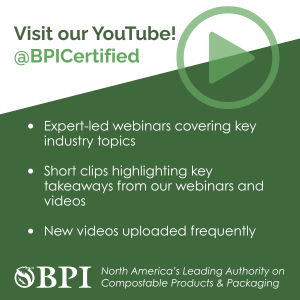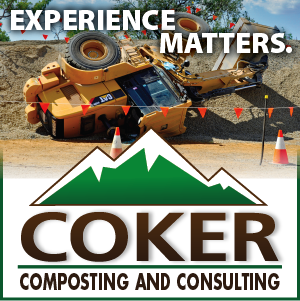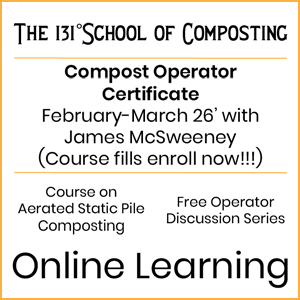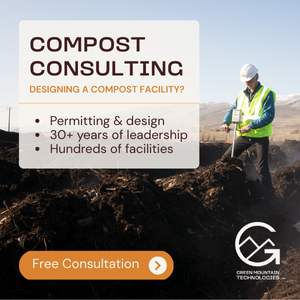Top: Study conducted for the Ireland Environmental Protection Agency examined plastic contamination in source separated organics.
A study undertaken for the Ireland Environmental Protection Agency (EPA) conducted 50 biowaste (source separated organics) characterization studies to identify contamination trends, with a specific focus on plastic. Foster Environmental and Tony Breton Consulting conducted the research and wrote “Identifying the Source and Scale of Plastic in Compost Derived from Household and Commercial Food Waste.” Authors Percy Foster, Tony Breton and Eoin Bird found that the contamination rate in all household biowaste collections was 8.9%, with the rate in co-mingled collections of food and garden waste being 9.8% and in collections of food waste being only 5.8%. The proportion of plastics found in household biowaste collections was 7%. This is nearly double the 4% found in Ireland EPA’s 2018 waste characterization study. The overall contamination rate in commercial food waste collections was 7.8%, almost eight times that of the 1% level recorded in the 2018 Ireland EPA study.
A laboratory conducted forensic analyses on a range of household products commonly observed during the waste characterization studies, to identify the presence and types of plastics they contained. The analysis showed that there was plastic in tea bags, fruit stickers, food condiment sachets (sugar, salt and sauces), ketchup seals, nappies (diapers), coffee cups, wet wipes, coffee capsules and vegetable nets.
“Such an analysis has not been done before now and provides proof of the presence of plastics, which may act as a hidden source of microplastics, in materials,” explain the authors. They reviewed policies, legislation and alternatives to develop a suite of solutions that are part of an integrated package aimed at solving the issue of plastics in food waste. A total of 15 solutions were recommended, ranked from 1 to 15 in order of “ability of the market to deliver, quickness, cost, enforceability and benefits to the system.”
The top five solutions are:
- Continue running the mywaste.ie national food waste recycling awareness campaign.
- Require that all waste collectors adopt uniform contamination policies (e.g. National Standards Authority of Ireland standard/industry best practice).
- Enforce the Irish Single Use Plastic (SUP) Regulation on the ban of oxo-degradable plastics.
- Enforce SUP Regulation conditions on plastic bottle rings/seals (went into force in July 2024).
- Legally require shops to use signs at point of sale instead of fruit stickers and legally, where it is impossible to remove them from the supply chain, any stickers and adhesives should be certified compostable and meet new Irish labelling requirements.
The study report can be downloaded at this link.


